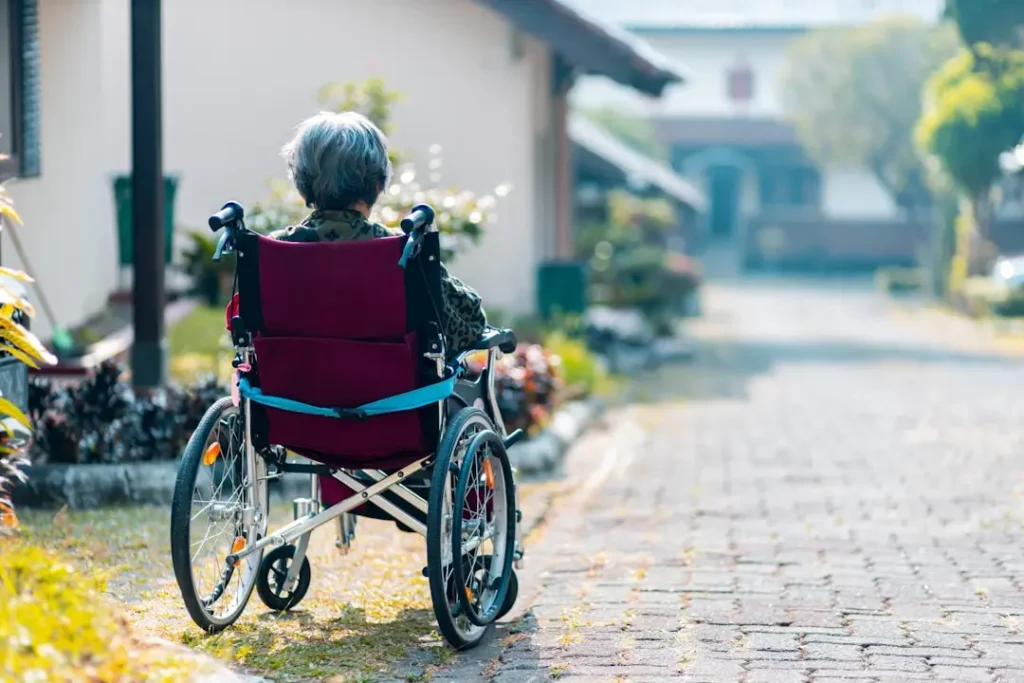Caring for someone with Alzheimer’s disease presents unique challenges that can be overwhelming for caregivers. It’s a journey that requires patience, understanding, and access to the right resources to manage the disease’s progression. Providing care to individuals with Alzheimer’s involves not only meeting their physical needs but also addressing their emotional and cognitive changes. In this article, we will explore various strategies and tools to support caregivers in their crucial role.
Understanding Alzheimer’s Disease and Its Impact on Caregivers

Alzheimer’s disease is a progressive neurological disorder that affects memory, thinking, and behavior, often requiring full-time caregiving as it advances. This shift can be overwhelming, leading to emotional and physical exhaustion, known as caregiver burnout. Recognizing symptoms like stress, anxiety, and fatigue early is essential for caregivers to seek support and maintain their well-being.
Caregivers can find valuable resources at https://www.alzinfo.org, which offers guidance on daily care, behavioral changes, and the disease’s progression. Support groups also provide comfort and practical advice, helping caregivers navigate challenges while ensuring compassionate care for their loved ones.
Leveraging Technology and Tools for Alzheimer’s Care
Technology plays a crucial role in Alzheimer’s care by enhancing safety and promoting independence. GPS trackers, smart home devices, and automated medication dispensers help caregivers manage daily tasks more efficiently. Remote monitoring systems and emergency response services offer added security, ensuring quick assistance when needed.
In addition to safety, technology fosters social connections and cognitive engagement. Video calls, social media, and easy-to-use tablets help individuals stay connected with loved ones and participate in stimulating activities. Meal delivery services also support caregivers by providing nutritious meals, reducing the effort needed for meal preparation.
Essential Coping Strategies for Alzheimer’s Caregivers
Effective coping strategies are crucial for Alzheimer’s caregivers, including daily routines, self-care, and communication. A daily routine provides structure and a sense of normalcy, while activities that promote quality of life, like hobbies or exercise, create joyful moments. Self-care involves regular exercise, balanced nutrition, and sufficient rest, as well as short breaks and respite care.
Communication can become strained as Alzheimer’s progresses, but adjusting conversation methods, using non-verbal cues, maintaining eye contact, and expressing empathy can improve understanding and connection. Patience is essential when engaging with individuals experiencing memory loss. Seeking professional help, such as counselors or therapists, can provide personalized strategies to manage stress and improve emotional health, as well as guide caregivers in setting healthy boundaries to prevent guilt.
Navigating Financial Resources and Support for Alzheimer’s Care

Alzheimer’s care is a significant financial burden for caregivers, with medical treatment, home care services, and supportive technology costs adding up quickly. Financial resources like SSDI, Medicare, and Medicaid can provide relief. Other options include long-term care insurance, veteran benefits, and community-based resources. Nonprofit organizations and foundations offer grants or financial assistance programs for caregivers of individuals with Alzheimer’s.
Financial planning is crucial for caregivers, with consulting with a financial advisor to develop strategies for managing current expenses and planning for future needs. Organization and detailed record-keeping are essential for navigating financial support and applying for assistance programs and tax deductions. Proper documentation can help alleviate financial pressures and ensure resources are available when needed most.
Building a Support Network for Alzheimer’s Caregivers
A support network can significantly improve the emotional and practical support for Alzheimer’s caregivers. Engaging in support groups, educational workshops, and seminars can provide valuable information and practical skills for caregivers to apply in their daily routines. These resources also allow caregivers to connect with healthcare professionals and other families navigating similar challenges.
Local community services like adult day care centers, home health aides, and professional caregiving services can provide relief and allow caregivers to focus on their own health. Acknowledging and expressing emotions is crucial for caregivers to feel empowered to discuss their fears, frustrations, and successes without judgment. Cultivating relationships with empathetic listeners can significantly enhance a caregiver’s mental and emotional state.
Altogether, though the challenges of Alzheimer’s caregiving are substantial, there are many strategies and resources available to support those who undertake this role. By understanding the disease, taking care of personal health, leveraging technology, navigating financial support, and building a robust network, caregivers can foster a supportive environment that benefits both themselves and their loved ones living with Alzheimer’s.
Also Read-Breaking the Cycle: The Importance of Drug Rehabilitation in Recovery


